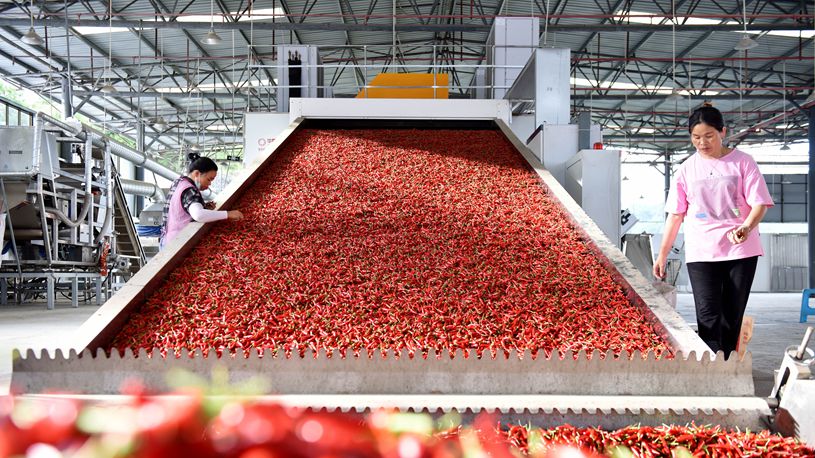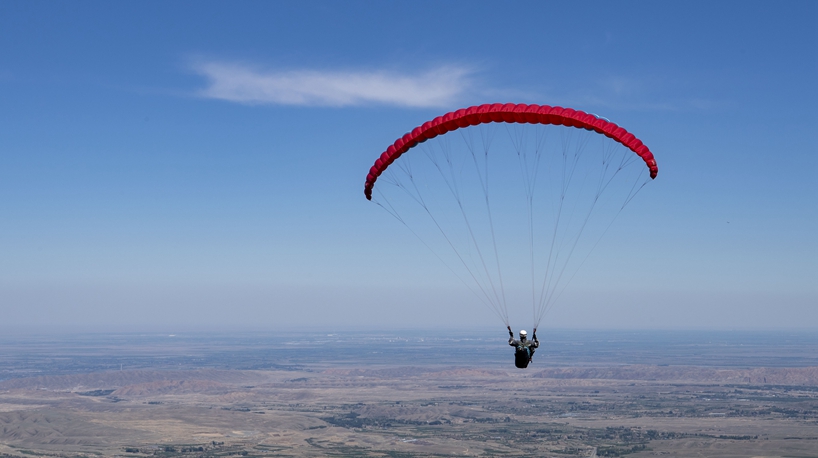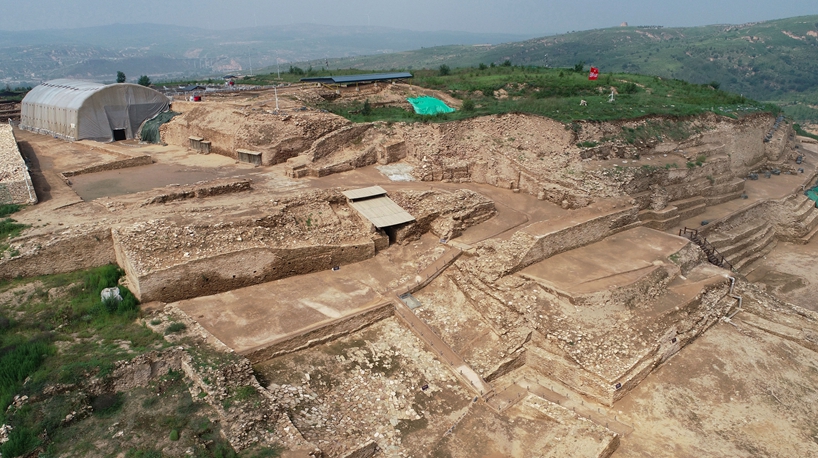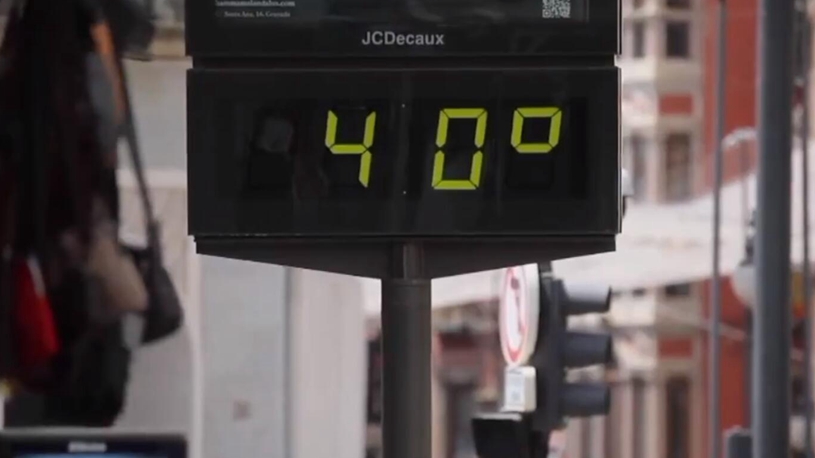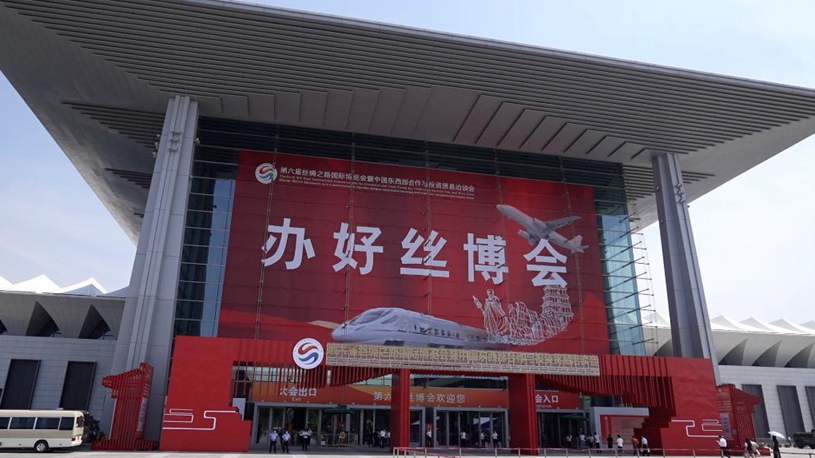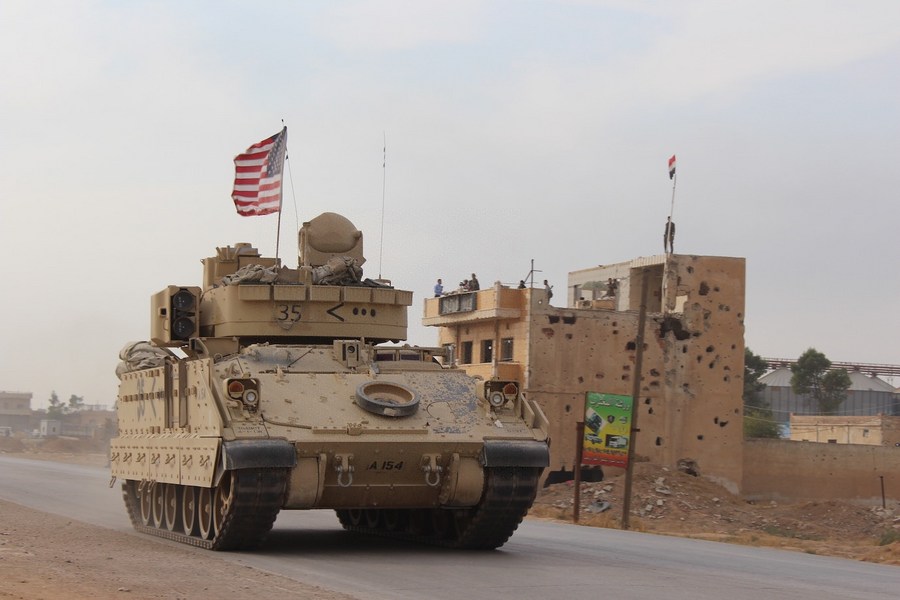
File photo shows a U.S. military vehicle runs past the Tal Tamr area in the countryside of Hasakah province, northeastern Syria, Nov. 14, 2019. (Str/Xinhua)
DAMASCUS, Aug. 15 (Xinhua) -- The real purpose of U.S. presence in Syria has never been about fighting terrorism, but stealing resources and imposing its own vision of the future on the Arab country, said Syrian experts.
From controlling key oil and agricultural fields to slapping suffocating sanctions, the United States has been blatantly violating Syria's sovereignty, the experts noted.
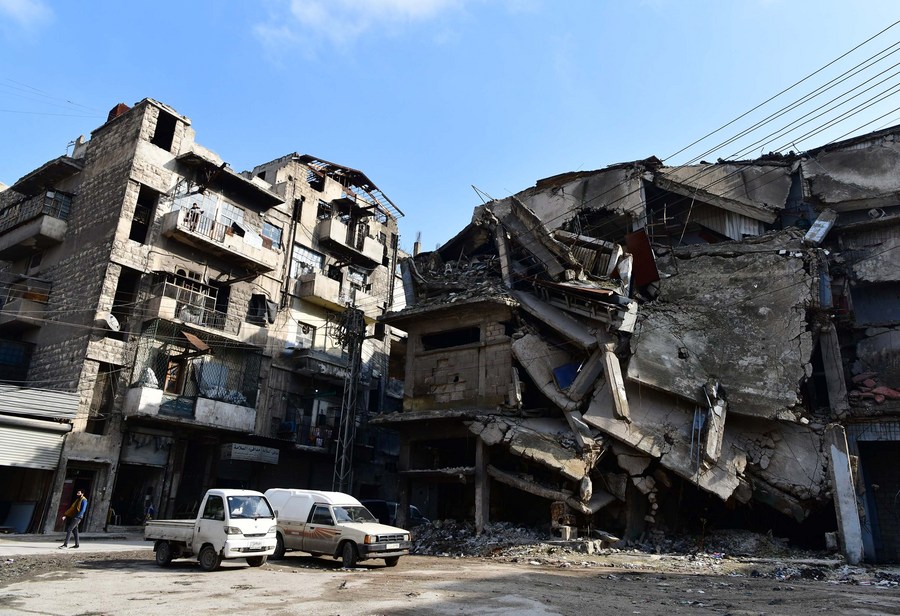
A destroyed building is seen at the Al-Qatirji industrial city in Syria's northern city of Aleppo on March 7, 2022. (Photo by Ammar Safarjalani/Xinhua)
LAME EXCUSE
Maher Ihsan, a journalist and political expert, told Xinhua that after being in Syria for eight years, Washington's real goals and schemes can not be hidden anymore.
He said no one can deny that fighting terrorism has become an old-school pretext that the United States has usually been using to justify its intervention in other countries.
"Look at the situation now, the United States is controlling key gas and oil fields in oil-rich areas in Syria, it's also controlling key agricultural areas ... the United States didn't come here to help, but to take advantage of the situation and impose their own will," Ihsan said.
U.S. presence in Syria is "illegitimate and its legal justification is weak," Ahmad Al-Ashqar, another journalist and political expert, told Xinhua in a recent interview.
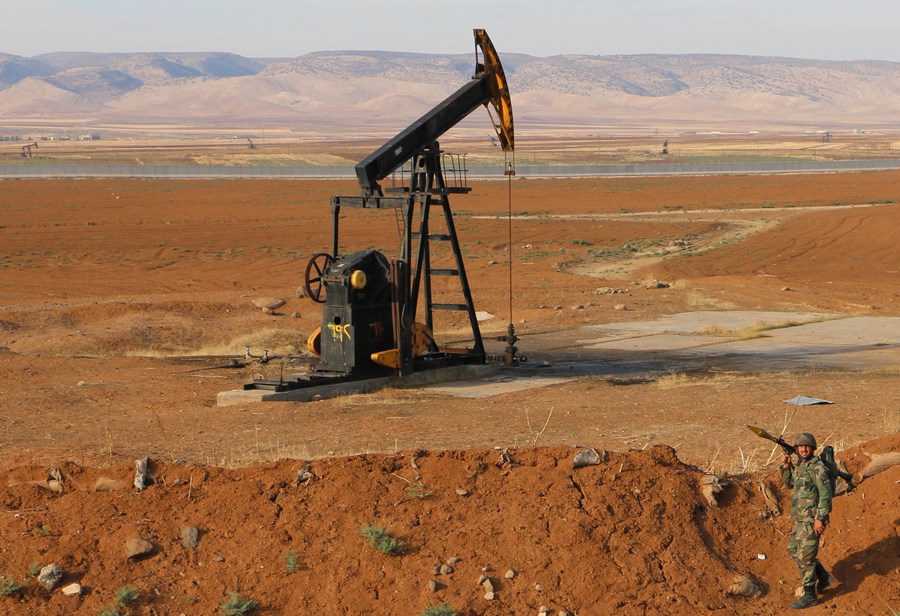
A Syrian soldier is seen in an oil field in the countryside of Qamishli, northeastern Hasakah province, Syria, on Nov. 5, 2019. (Str/Xinhua)
PLUNDERING RESOURCES
After its direct military interventions in Syria in 2014, the United States has deployed troops to Syria's oil-rich areas, such as the northeastern province of Hasakah and the eastern province of Deir al-Zour.
On Aug. 8, the Syrian oil ministry said in a statement that the average daily output of Syrian oil in the first half of 2022 is 80,300 barrels, while the U.S. occupying forces and their "mercenaries" are stealing an average of 66,000 barrels a day, accounting for over 83 percent of Syria's oil output.
According to the ministry, the prolonged crisis in Syria has cost Syria's oil sector about 105 billion U.S. dollars in direct and indirect losses.
The U.S.-led military coalition also smuggled and burned Syrian wheat many times. In May 2020, the U.S. military used Apache gunships to drop incendiary bombs at al Shaddadi in southern al-Hasakah governorate, northeastern Syria, which burned local wheat crops into ashes, killing 14 Syrian civilians and causing nearly 50 million dollars worth of damage.
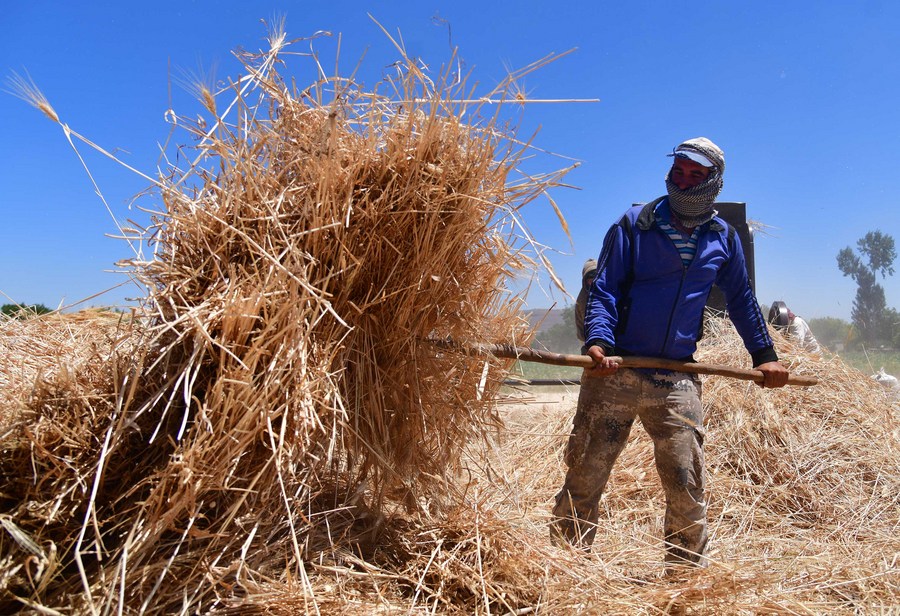
A farmer harvests wheat in the countryside of Damascus, Syria, on June 27, 2022. (Photo by Ammar Safarjalani/Xinhua)
SUFFOCATING SANCTIONS
After all these years, Syrians are now suffering from a lack of wheat and skyrocketing prices as a result of the suffocating economic sanctions imposed by the United States.
Al-Ashqar said that the illegal presence of the United States and its allies in Syria is the main obstacle to the country's return to normal life, a stance also voiced repeatedly by the Syrian government.
Stressing that U.S. accusations against Syria are an over-the-top hypocrisy, Al-Ashqar told Xinhua that the United States aims to continue imposing illegal economic sanctions that impede the urgent reconstruction of Syria's infrastructure and prevent the arrival of necessary medical equipment and medicines.
The United States must return the areas it occupies to Syria, stop its destructive work, and lift its sanctions and illegal unilateral coercive measures that impede the reconstruction of the country, the expert continued.
Al-Ashqar's view was echoed by Ihsan, who said that the U.S. presence in Syria has been "destructive," and its plan in Syria has been extremely detrimental to the country and people.
"From sanctions to controlling the Syrian natural resources, the United States has actually caused severe damage to Syria as a state and people. Look at the people now, humanitarian organizations say most Syrians live under the poverty line, but they do not mention who is responsible," Ihsan said. ■



